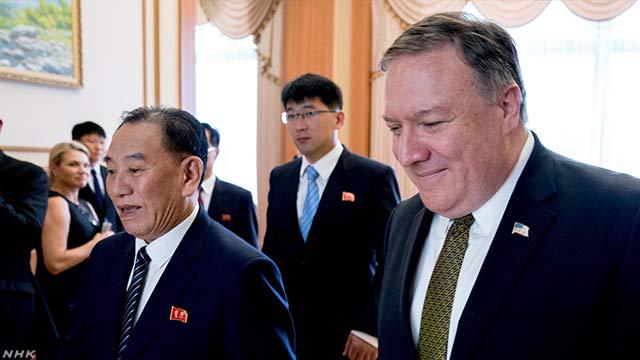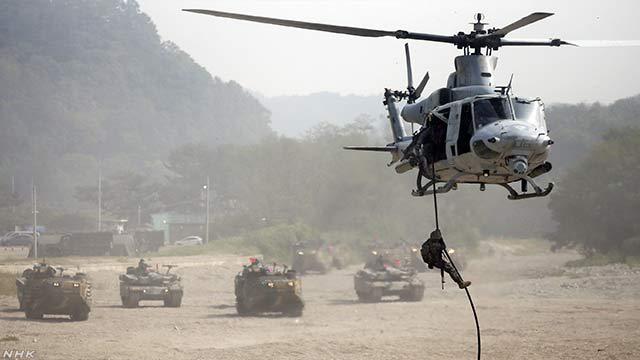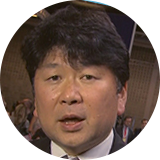Political Show
"There is no longer a nuclear threat" from North Korea, Trump said in a tweet. The comment came one day after his summit with Kim Jong Un and images of their handshake were being broadcast around the world.
But despite Trump's boast, critics began voicing suspicion over North Korea's commitment to denuclearization.
A statement signed by the 2 leaders after the summit stated the North was committed to working toward complete denuclearization. But there were no other details.
Prior to the summit, I spoke to US Secretary of State Mike Pompeo. He had just visited North Korea as part of his efforts to lay the groundwork for the summit. He said Kim had explained to him that he would discuss with Trump at the summit how to pursue denuclearization. Pompeo also said that the two leaders would discuss a timeline for denuclearization.
But the agreement the 2 leaders came out with was short on details. Critics say the summit was merely a political show. Some even say Kim has no intention of giving up his nuclear program.
Conflict Resurfaces

To alleviate these concerns, Pompeo returned to the North on July 6th. His goal was to come up with some sort of roadmap toward denuclearization. During his two-day trip, he met with the vice chairman of North Korea's ruling Workers' Party, Kim Yong Chol, a close aide of Kim Jong Un's.
After the meeting, Pompeo told reporters that progress had been made. However, to his and the Americans' surprise, North Korea released a statement to the contrary.
A foreign ministry spokesperson called the talks "regrettable" and accused the United States of making "one-sided and robber-like" demands for the complete, verifiable, and irreversible denuclearization of North Korea.
The talks not only failed to lessen concerns within the US, as Pompeo had planned, but also highlighted the distance between the 2 countries. Pyongyang's contradictory reaction further heightened suspicions from the US that the North may not intend to move toward denuclearization.
Secret uranium enrichment facilities
Analysis by US intelligence on North Korean nuclear programs is also fueling the suspicion.
NBC News reported on June 29th that US intelligence agencies believe the North has been increasing enriched uranium production over the past months.
The North had been pursuing the use of both plutonium and enriched uranium to make nuclear weapons. The country is believed to have at least one undeclared enrichment facility, aside from Nyongbyon, whose existence became publicly known in 2010.

Other US outlets reported that the North has another covert uranium enrichment site in the suburbs of Pyongyang. Reports say US authorities are monitoring the site, known as Kangson. It is believed to have twice the production capacity of Nyongbyon.
How serious is North Korea about denuclearization?

North Korea must report the details of its nuclear programs as the first step toward denuclearization. A senior US government official told NHK that the US is asking the North to report the number of its nuclear warheads, their locations, the number of experts working at nuclear facilities, and other details.
The report is seen as a gauge of how serious the North is about denuclearization. If the newly-discovered Kangson site is not included on the list of facilities, suspicion over the country's willingness to abandon its nuclear weapons programs would be heightened.
Some experts believe Trump may go back to his "maximum pressure" strategy, abandoning his seemingly friendly posture, if the North does not present an accurate report.
Abandoning policy of hostility
Trump had previously adopted a belligerent stance toward North Korea, referring to Kim as "rocket man."
After the summit, he changed course, praising Kim as talented and smart.
Trump apparently aims to resolve North Korea's nuclear issue by establishing friendly relations with Kim.

NHK spoke to a high-ranking US official about the importance of building trust.
The official explains that North Korea says it possesses nuclear weapons to defend itself in the face of hostile US policy. In other words, the North will have no reason to possess nuclear weapons if measures are taken to clear the distrust.

As a step toward this, Trump cancelled the US-South Korea joint military exercises scheduled for August.
Trump maintains that his policy is to emphasize dialogue and friendly ties with the North.
Tug of war over easing sanctions
Meanwhile, the Trump administration has consistently refused to ease sanctions on North Korea. It believes the sanctions forced the North to promise denuclearization, and that the sanctions give the US leverage to make the country deliver on this promise.
For the North, however, the sanctions represent hostile US policy.
And a tug of war has begun at the United Nations on whether to continue or ease them.
On June 28th, China and Russia submitted to the UN Security Council a draft statement calling for the sanctions to be eased.
The United States rejected it, saying denuclearization must come first.

On July 12th, the US accused North Korea of breaching UN Security Council sanctions by exceeding the limit on imports of refined petroleum products via offshore ship-to-ship transfer. The US urged other countries to properly enforce UN Security Council sanctions.
Second US-North Korea summit

It remains to be seen how long the friendly atmosphere between the two countries will continue. A view in the US is that Trump will maintain his policy of dialogue and friendship and emphasize the easing of tension on the Korean Peninsula as his achievement until at least November's midterm elections.
He has been praising himself over the past month, claiming he made North Korea halt its nuclear and missile tests.
There's speculation that he may invite Kim to New York for a second summit in September, on the sidelines of the UN General Assembly.
But if the North does not take concrete steps toward denuclearization, skepticism in the US may continue to grow and this could hurt Trump in the November elections.
Trump says there is no time limit for negotiations with North Korea and that there's no hurry. But on July 17th, he suggested to reporters that the talks may be prolonged. That drives home the point that denuclearization is not an easy process. Trump may have finally realized how challenging it will be.

